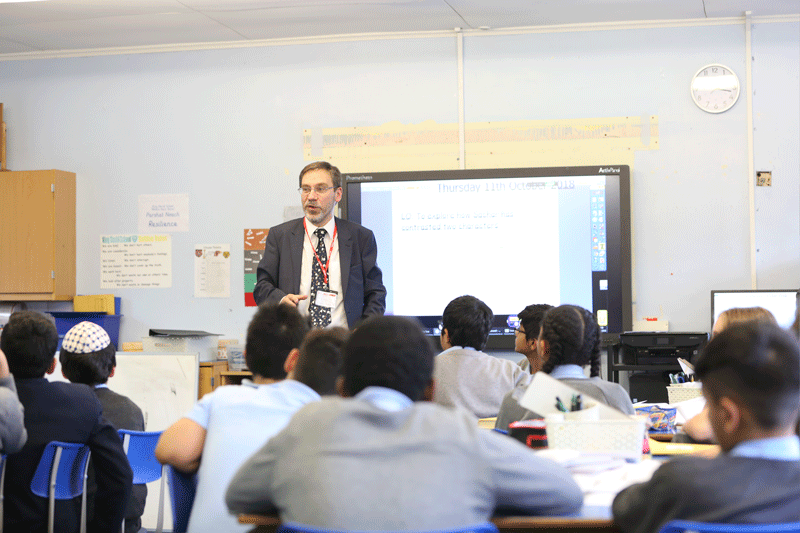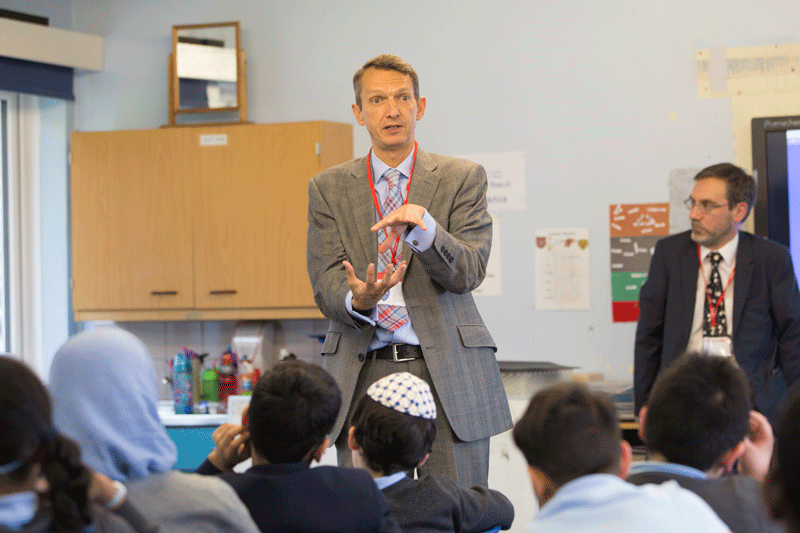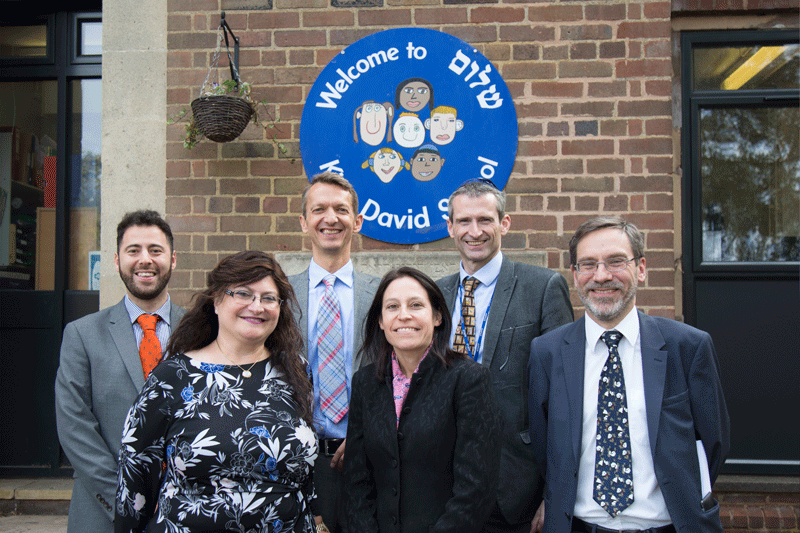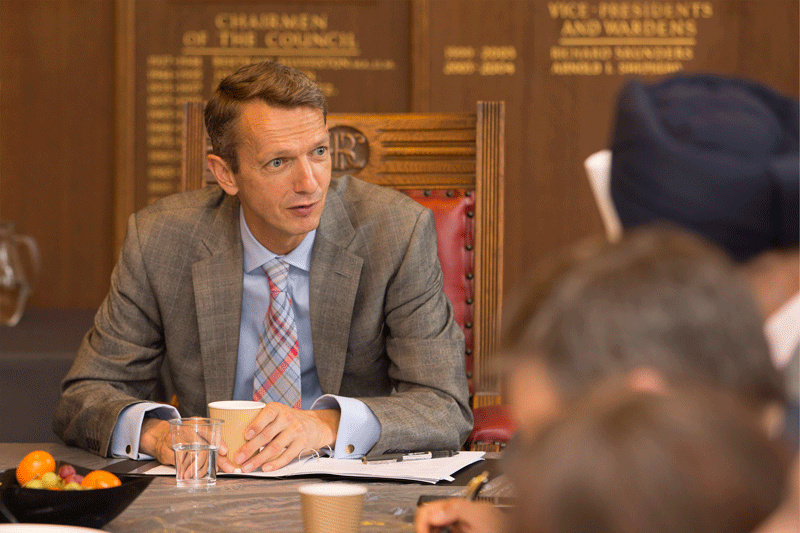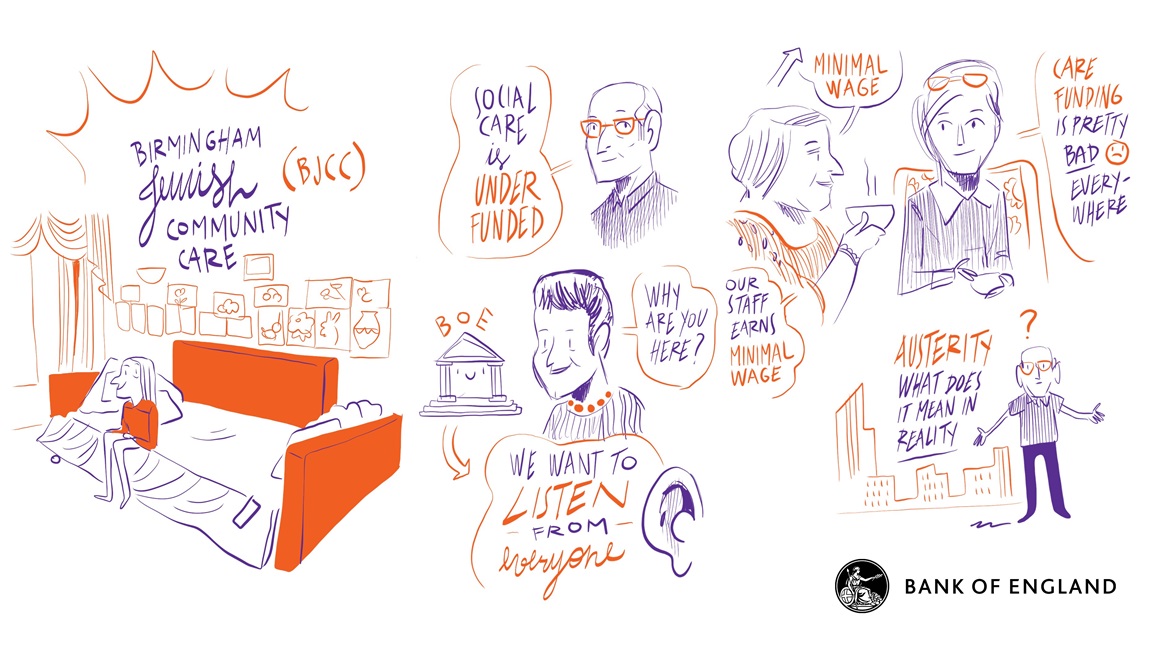My second set of roundtables was done in partnership with the Board of Deputies of British Jews, the Bank’s second event with them this year following a very successful visit to Gateshead. The Board of Deputies organised this visit with the Birmingham and West Midlands Jewish Representative Council. The tour involved a visit to the Birmingham Jewish Community Care centre, King David Primary School and a meeting of multi-faith leaders at the beautiful Singer’s Hill Synagogue.
One of the key themes from the visits was the importance of turning Birmingham into a city which could attract and retain young, skilled people. At one level, this is a little surprising as Birmingham is a city on the rise. The city centre has been extensively redeveloped and is the most visited shopping destination in the UK outside of the West End. Further plans for redevelopment are underway with the new HS2 station. HSBC has recently located its new UK Head Office to the city. Birmingham also benefits from a large, young and diverse workforce which is growing rapidly.
The question posed was whether the development of the city would be sufficient to attract and retain talent. This was key to supporting local businesses and communities. It meant more than offering people jobs. Housing, culture, transport and social spaces all mattered just as much. Increasing the attraction of Birmingham is a crucial issue for the city and the region.
Another theme of the day, as is the case on many of my Townhalls, was education. Visiting King David Primary School was a fascinating experience. It is a state-funded faith school, providing a Jewish education, at which only around a third of the pupils are Jewish. Around half are Muslim and a significant number are Sikh. Its academic performance and culture means it is a beacon for parents in the region of all faiths. Like my roundtable discussions during the day, it was a fantastic example of the benefits of inter-faith co-operation and diversity.
I would like to thank Phil Rosenberg, Director of Public Affairs at the Board of Deputies of British Jews, and Ruth Jacobs, Chair of the Representative Council of Birmingham and West Midlands Jewry, for facilitating such a wonderful day. I’d also like to thank the Bank’s Agents in the West Midlands, Graeme Chaplin and Glynn Jones, for hosting me.
My next stop will be the first formal trial of the Bank’s new Citizens’ Panels in Northern Ireland on 27 November.



